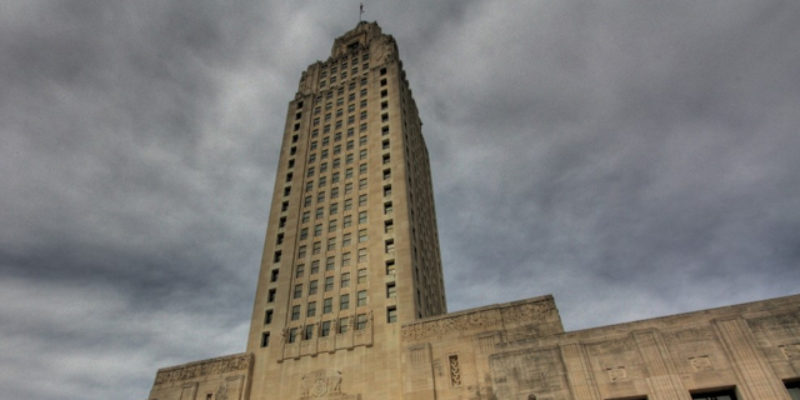Bad choices made by both legislators and New Orleans imperil funding that could go to reducing the large backlog of services for people with disabilities in Louisiana’s fiscal year 2016 budget.
Advocates for and the disabilities community initially were cheered, if not overjoyed, when the House of Representatives sent to the Senate a budget that included around $61 million that not only would restore funding for recipients of New Opportunities Waivers frozen as a result of mid-year budget cuts but also could open up thousands more. By apportioning around $23 million in state general funds, federal funding could make up the difference.
But any such joy would be short-lived upon discovery that the state match relied upon defunding the Office of Public Health, in what the legislator whose amendment to the budget provided the means of finance state Rep. Chris Broadwater would admit catered to a constituent’s request designed only to get attention about alleged shortcomings at the agency. The Senate Finance Committee reversed the decision and when the Senate takes up the budget today it will consider funding only $3.5 million in state money, enough to unfreeze the slots.
Yet if the will really existed in the Legislature to make a substantial dent in the waiting list for waiver services, with these permitting individuals to live outside of large institutions in home or community settings in the aggregate less expensively than the state would pay for institutionalization and/or to relieve family members from having to perform complex services often beyond their capabilities at the expense of their own employment, there’s a health expenditure that could be cut that benefits only New Orleans that it refuses to carry on its own.
That’s funding of the Greater New Orleans Community Health Connection, a series of clinics set up in the wake of the hurricane disasters of 2005 to provide primary health care needs. The original budget by Gov. Bobby Jindal wisely zeroed out state funding after almost a decade, correctly arguing that it was time that New Orleans took responsibility for the program and ceased depending upon state taxpayers to subsidize it. Unfortunately, the House version put in about $22 million for this program, over 80 percent of its existing state funding.
What should upset particularly citizens across the state, including in New Orleans, about this is New Orleans easily could pay for this itself, but instead chose the quixotic building of a hospital in New Orleans East that opened last summer where no real need for a full-service hospital there existed. This came despite the imminent opening this year of the new University Medical Center public hospital in Mid-City that will add over 400 beds to the area and that St. Bernard Parish also opened a facility with more beds that could serve New Orleans East.
All optimism shone forth under the projections used by the component unit of New Orleans to govern New Orleans East Hospital to justify its building with a 2010 report presenting a rosy scenario of surpluses for years to come. Reality began to sink in concerning the over-optimistic predictions by the time the agency went to the State Bond Commission in 2012 to approve its borrowing, such as the report having based its revenue assumptions on 55 percent of the patient census being private pay (insurance or out-of-pocket) while by the time of the presentation to the SBC that level was deemed only 25 percent. A year later, the city/agency took itself out of direct operation of the impending hospital by contracting it out to the same operator that will run UMC, promising 3.5-3.75 percent of revenues, meaning that it would have to eat costs above revenues minus the fee.
The city subsidy plus debt defeasance could amount to as much as what goes into the clinics every year. Yet the city insisted on adding 80 beds to the nearly 500 coming on line in the area plus having the state supply the clinics. It does a disservice to state taxpayers, in essence, to pay for New Orleans’ mistake. It’s New Orleans that needs to get its health care priorities right, such as by selling the new hospital and recouping as much as it can and channeling those saved funds into supporting its own clinics instead of exporting that onto everybody else. And state legislators need to quit enabling this behavior so they can spend these funds where they would be much more efficiently used, such as in provision of NOW slots that could pare from the 13,000- member waiting list for such services.
Advertisement
Advertisement

